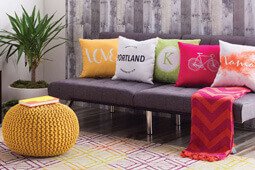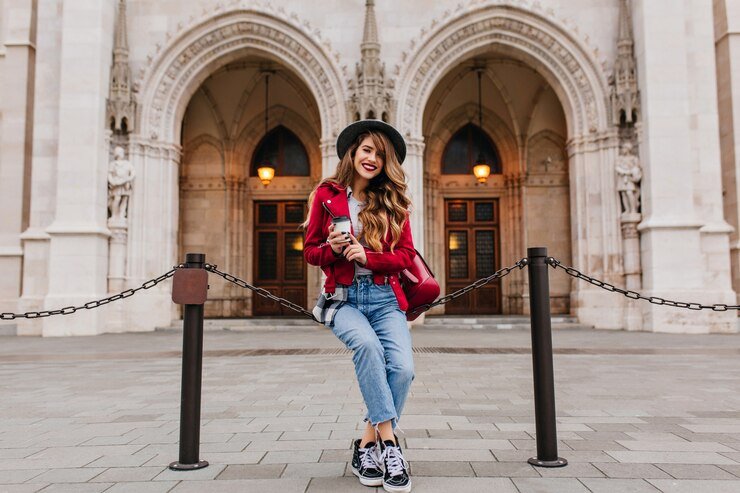The London College of Fashion (LCF) stands as a beacon for aspiring fashion designers, stylists, and innovators from around the world. Part of the University of the Arts London, LCF specializes in providing education and training for students in fashion, makeup, beauty therapy, and lifestyle industries. With its global reputation for excellence, getting accepted into LCF is no small feat. This guide will help you understand what it takes to secure admission to the London College of Fashion and excel in your chosen course.
Campus and Facilities
The London College of Fashion boasts several cutting-edge campuses, designed to inspire creativity and innovation. The main campus is located on John Princes Street, just north of Oxford Circus, while other hubs include High Holborn, Lime Grove in Shepherd’s Bush, Mare Street in Hackney, Curtain Road in Old Street, and Golden Lane in East London.
LCF offers exceptional facilities, from the UK’s largest fashion library and sample sewing rooms to 3D modeling spaces, cosmetic science labs, and visual merchandising studios. Advanced resources, including augmented reality tools at the Digital Anthropology Lab and a dye and flax garden at Mare Street, ensure students have access to world-class equipment and technical support throughout their education.
How to Get Into the London College of Fashion
Admission to the London College of Fashion is highly competitive. The overall acceptance rate for the University of the Arts London (UAL) is around 22%, with LCF specifically accepting approximately 23% of undergraduate applicants and 36% of postgraduate applicants. Meeting the eligibility requirements is just the beginning; beyond academic qualifications, applicants need strong portfolios, personal statements, and relevant experience to stand out.
Minimum Entry Requirements
Depending on the program you’re applying for, the requirements for admission to LCF vary. Here are the key criteria for some of their popular programs:
BA (Hons) Fashion Design and Development
- Two A-Level passes at grade C or above (preferably in subjects like English, Math, Art, or Textiles).
- Pass in a Foundation Diploma in Art and Design.
- A BTEC Extended Diploma with a Merit, Pass, Pass in Art & Design.
- Relevant international qualifications, such as the International Baccalaureate (IB) Diploma.
- Minimum IELTS level 6.0 for non-native English speakers (or equivalent English proficiency score).
- A compelling portfolio showcasing creativity, research, and awareness of current fashion trends.
Fashion MBA
- A 2.1 undergraduate degree (or its international equivalent).
- A minimum of three years’ work experience in a fashion-related industry (including internships or self-employment).
- Minimum IELTS level 7.0 for non-native English speakers.
Application Essentials
To apply to the London College of Fashion, you’ll need to submit several critical documents. These include:
- A recent passport-sized photo.
- A personal statement (300–500 words) outlining your passion for fashion and reasons for applying.
- A copy of your passport’s photo page.
- An academic reference.
- Academic transcripts showing your most recent grades.
- A portfolio tailored to your chosen area of study.
Portfolio Guidelines
Your portfolio often carries the most weight in your application and should reflect your creativity, technical skills, and understanding of the subject. Different courses may have specific portfolio requirements, but here’s what you’ll generally need to include:
- Art and Design Courses: 20–25 images showcasing your creative process. Highlight how your ideas progress from initial research to a finished product.
- Fashion Design and Styling: A minimum of five curated images displaying your projects and design development process.
- Fashion Business and Media: One written piece in English, with a maximum word count of 500, demonstrating your analytical and communication skills.
Why Choose LCF for a Fashion Education?
What sets LCF apart is its emphasis on innovation and its industry connections. Students benefit from hands-on experience, collaborations with leading designers, and access to cutting-edge research and technology. Additionally, LCF’s location in London places students at the epicenter of global fashion, with opportunities to network and intern with some of the biggest names in the industry.
Alternative Fashion Schools
If you’re considering other institutions alongside LCF, here are some globally recognized fashion schools:
- Parsons School of Design (USA)
- Fashion Institute of Technology (FIT) (USA)
- Central Saint Martins (UK)
- Royal Academy of Fine Arts Antwerp (Belgium)
- Bunka Fashion College (Japan)
Final Thoughts
Securing a spot at the London College of Fashion is undoubtedly challenging, but it’s a worthwhile pursuit for anyone passionate about fashion. From its rigorous application process to its outstanding facilities and expert-led courses, LCF offers an unparalleled learning environment for aspiring fashion professionals.
For those ready to take on the challenge, meticulous preparation is key. Start crafting a strong portfolio, refining your academic credentials, and developing your personal statement. Remember, the effort you invest today could mark the beginning of an extraordinary career in the world of fashion.






